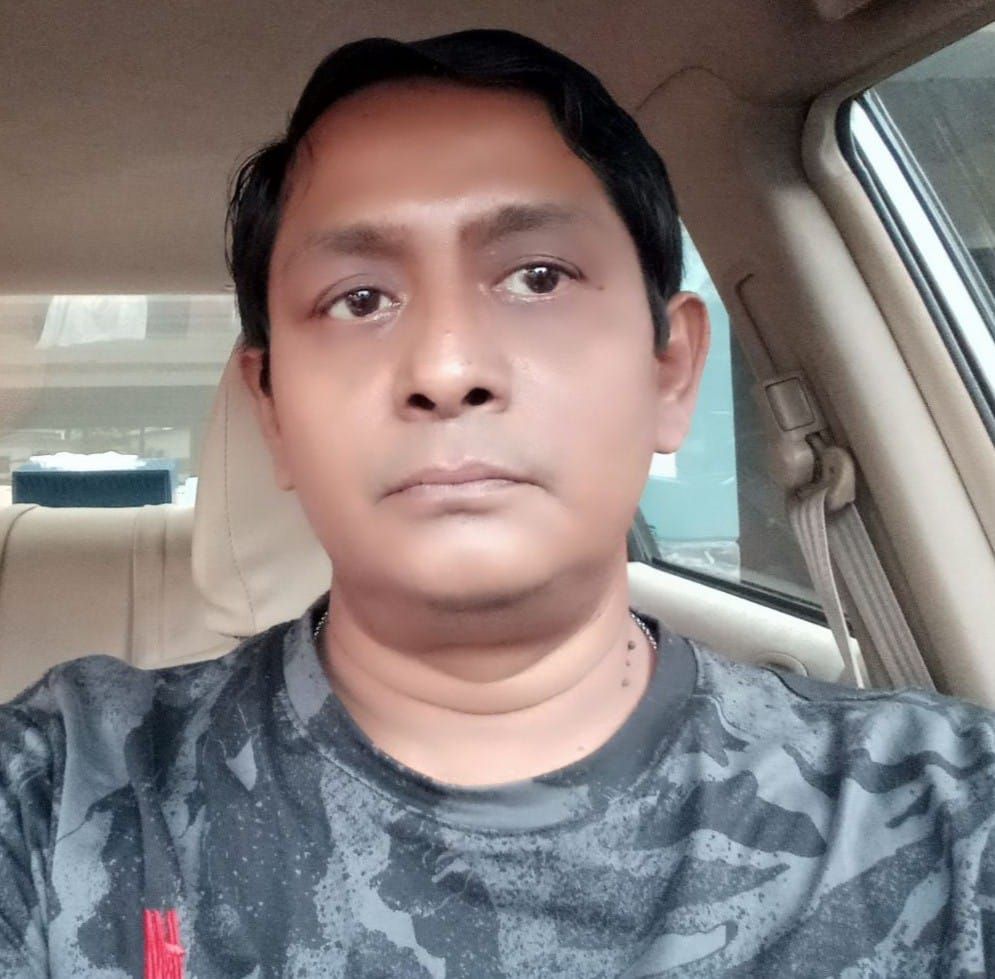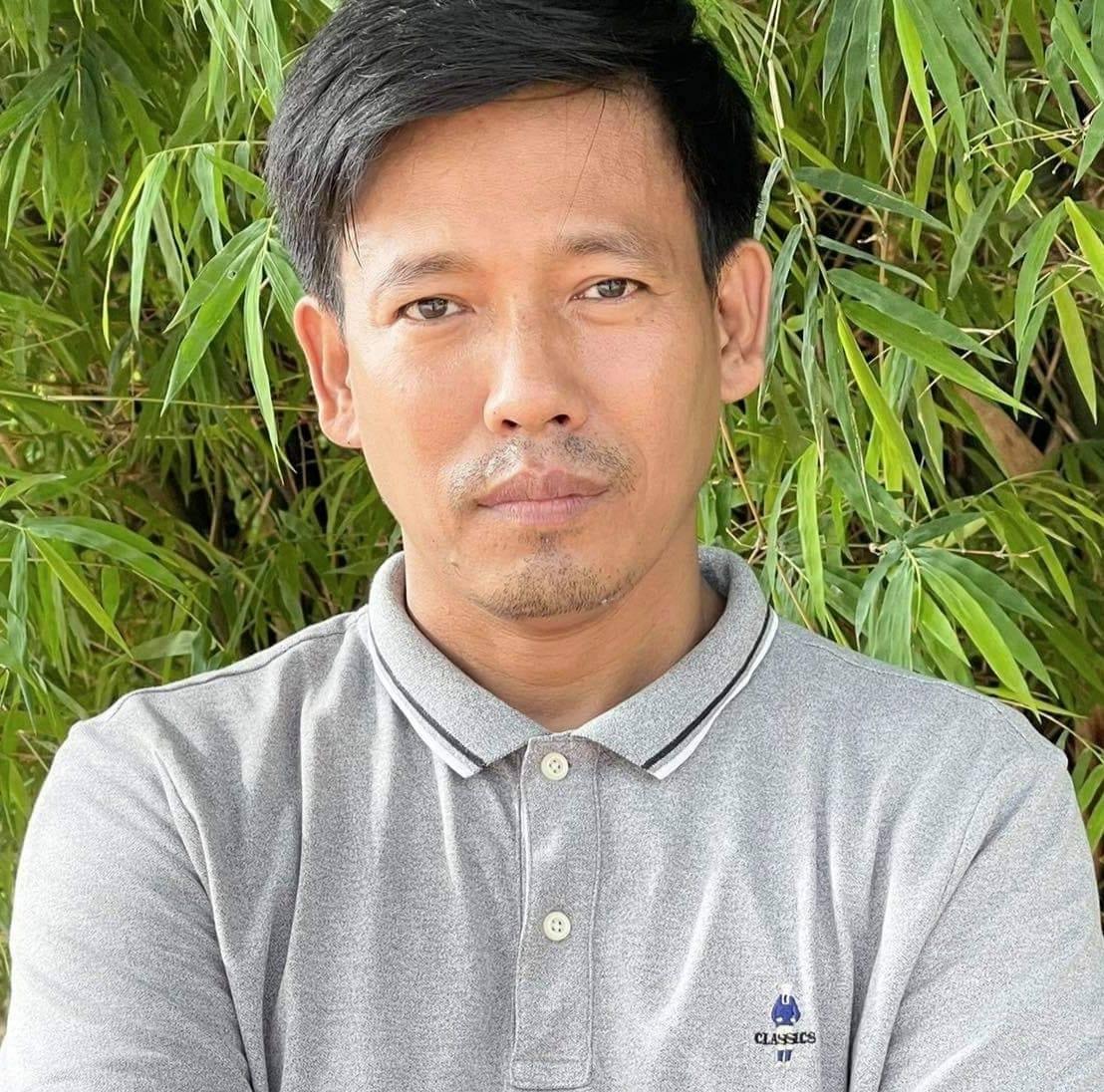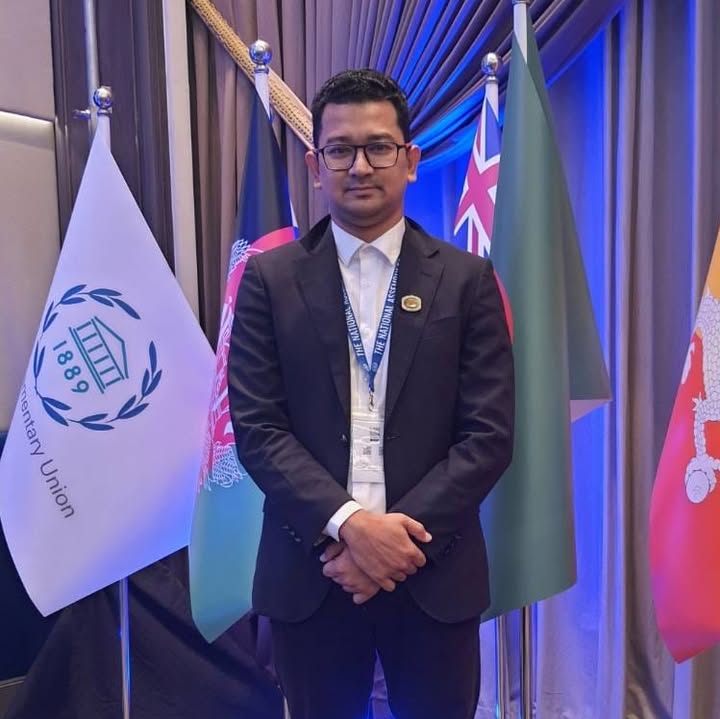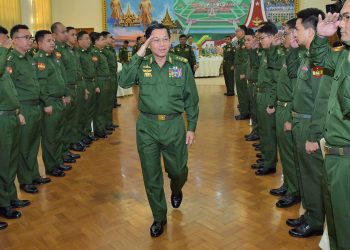A body of lawmakers elected in 2020 general elections that acts as the legislative of the parallel National Unity Government on June 13 enacted a law pledging security for civil servants who joined the Civil Disobedience Movement.
The Committee Representing the Pyidaungsu Hluttaw (CRPH) said the law outlines protection and support mechanisms for the civil servants who joined the resistance after the 2021 coup—but it also proposes legal action against civil servants who collaborated with the junta.
A few days after the law was announced, a school headmistress and her husband were killed in Mandalay Region’s Nyaung-U Township. Pro-junta media outlets took advantage of this and linked it to the new legislation, suggesting that it had declared open season on government officials.
But even within the resistance, the law has drawn criticism. While many see it as a step toward acknowledging the sacrifices of CDM civil servants, others have raised concerns that it offends against democratic principles and human rights.
The provisions targeting non-CDM personnel have proved particularly controversial. The Irrawaddy asked some people about their opinions.
U Than Lwin Oo (member, executive committee representing university faculty members)
We fully welcome and accept the intent of the law to recognize the role of CDM civil servants and honor them. But it also intends to broadly prosecute all non-CDM civil servants. So the essence of this law, in the eyes of our union, appears more like a political maneuver to capitalize on CDM rather than a sincere effort to honor the civil servants of the resistance, and we don’t accept their political exploitation.
In the early days after the coup, there were promises of salaries and support for CDM civil servants, but today, as everyone knows, many of them are still struggling.
Over the past three to four years, the political leadership and leadership capacity of the revolutionary bodies has come into question. We see this law as an attempt to revive their image rather than address the real issues. We believe the law is a bid for political gain by exploiting CDM civil servants.
Moreover, we don’t believe this is the right time. If a law is to be adopted, there is a need to consider it from broader perspectives and make it comprehensive. Laws should be designed not just for the short term. There is a need to reconsider its consequences for the entire society and the long-term future of the country.

U Kyaw Ni (deputy labor minister, NUG)
This law is not a punitive measure targeting non-CDM civil servants. Its primary purpose is to define how CDM civil servants should be supported and honored. Naturally, when drafting legislation, related matters must be addressed. Since CDM exists, so does the concept of non-CDM, and the law must reflect how to approach both.
That said, the law does not state that all non-CDM civil servants will be prosecuted. What it outlines is that any disciplinary action will be based on specific offenses committed—not on the mere fact of not joining the CDM. The criticism that the law indiscriminately targets all non-CDM personnel is a fundamental misunderstanding.
In principle, any law must hold individuals accountable for wrongdoing, regardless of affiliation. As this law is related to the CDM, it includes provisions regarding CDM and non-CDM individuals. The National Unity Consultative Council also has a policy to take punitive action against non-CDM civil servants depending on the severity of their offences. We designed the law in line with that policy. So to be clear: this is not about punishing people simply for not joining the CDM.

Ma Chit Seng (Fortify Rights human rights violations investigator)
It’s a good thing to enact this law to honor and protect civil servants who joined the CDM, but the provisions against those who did not join the CDM or joined the civil service after the coup, and requiring them to publicly apologize, go against democratic principles and human rights.
Some non-CDM civil servants might have been threatened, and some might have family members to support, and for some, that job might be their only livelihood. We need to put ourselves in their shoes and try to understand the difficulties they might have faced. If we fail to acknowledge their hardships and instead treat them as offenders, we risk compounding their suffering.
This law should be revised based on democratic values and human rights. In particular, it’s essential to distinguish between those who actively participated in the junta’s atrocities and those who remained in service out of necessity. Justice should be based on individual actions—not collective punishment.
Former captain Zin Yaw (defector from the military)
To be honest, this law has had a significant impact on the non-CDM. Some of our sources—both within the military and in various departments—are getting worried. Some say they helped the revolution by leaking information while others now feel compelled to continue supporting the current regime out of fear that they’ll be prosecuted by a future government. We have heard from our sources that the law has created a palpable sense of anxiety.
U Sithu Maung (member, CRPH)

This law is not about revenge or retribution. Its primary focus is to honor and recognize civil servants who took part in the CDM. As for disciplinary action against non-CDM civil servants, it will be only be taken in line with the law.
Punitive action will be taken against only those who supported and cooperated with the regime in the coup, and punishment will vary depending the extent of their involvement.
The law includes provisions for appeals, the right to submit statements of explanation, and the formation of a commission tasked with handling their appeals. One of the key sections in the law explicitly outlines the goal of uncovering the truth and ensuring justice, not punishing people indiscriminately.

















